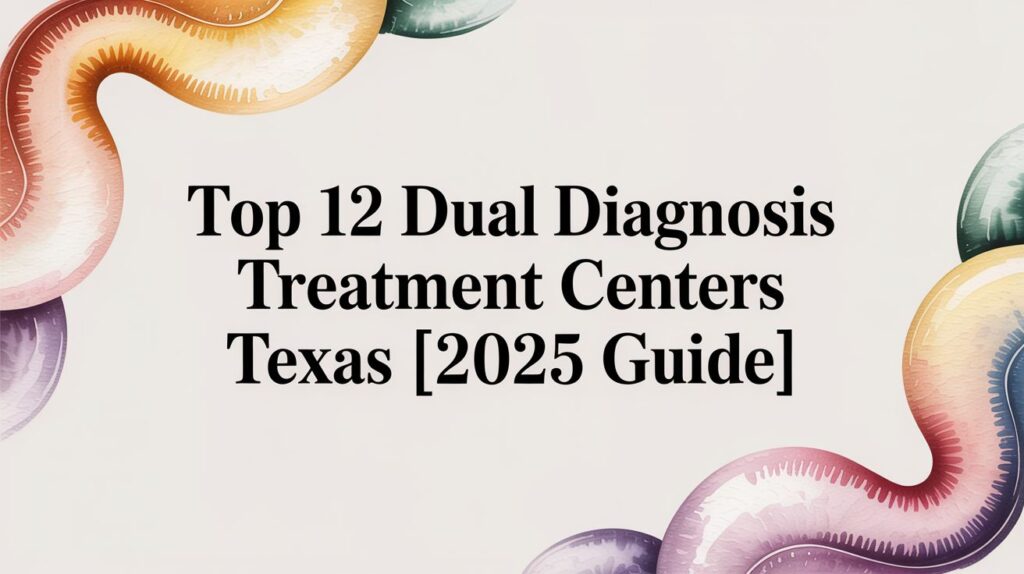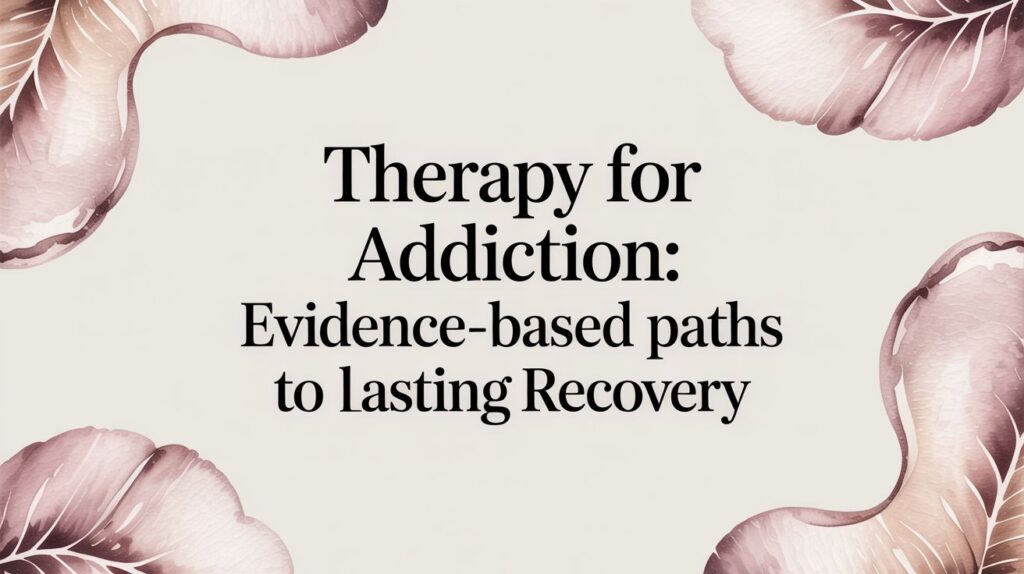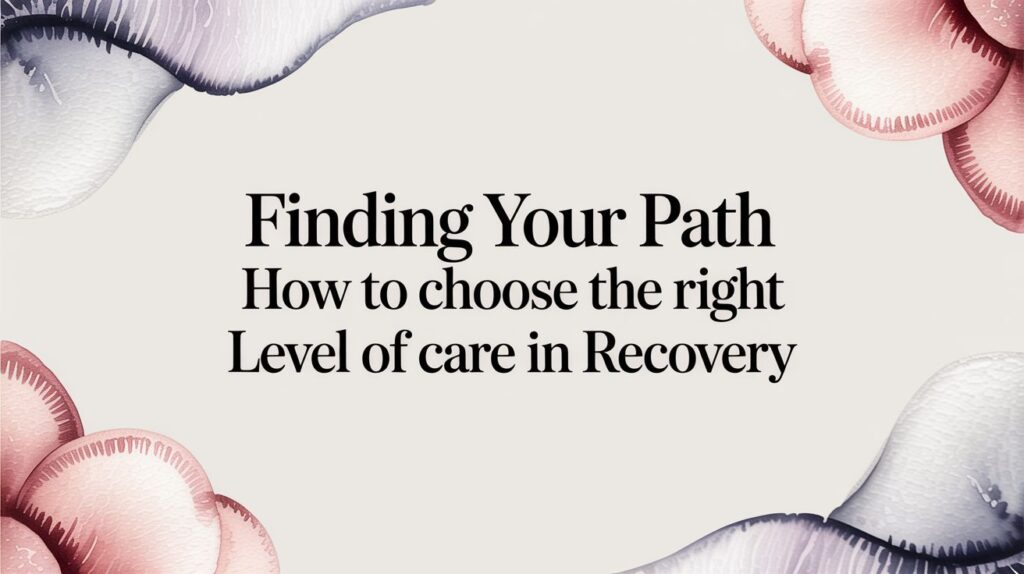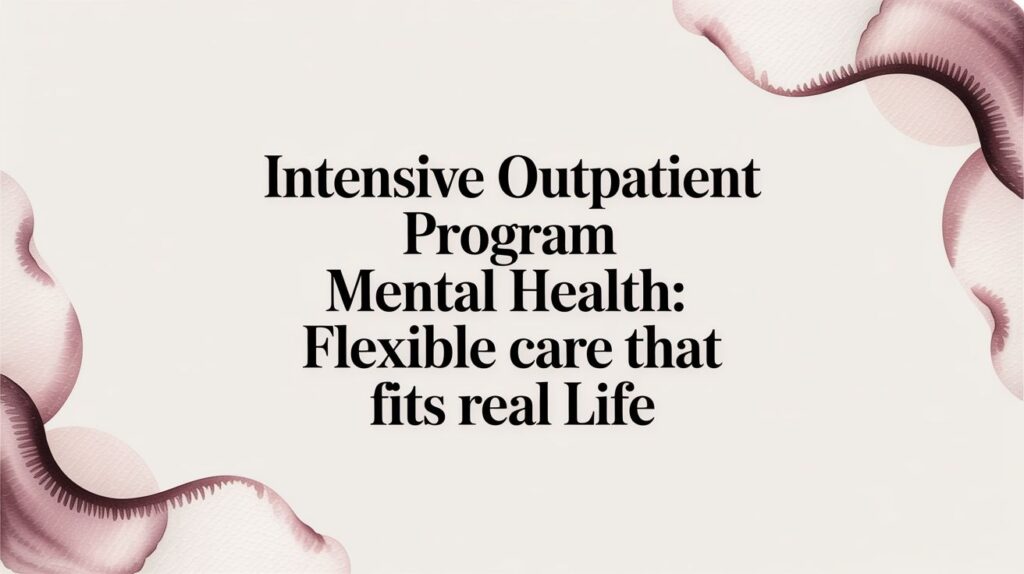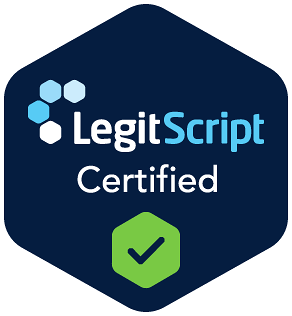When substance use and mental health conditions intertwine, finding the right support is critical. This combination, known as dual diagnosis or a co-occurring disorder, requires a specialized treatment approach that addresses both issues simultaneously for lasting recovery. The journey can feel overwhelming, but the state offers a diverse landscape of care options. This guide is designed to be your compass for navigating the options among dual diagnosis treatment centers in Texas.
We've created a comprehensive directory to simplify your search. It cuts through the noise to help you understand what to look for, the key questions to ask, and how to identify high-quality programs that fit your specific needs. You will gain a clear understanding of the different levels of care available, from outpatient services that allow you to maintain daily responsibilities to more intensive residential programs.
This resource provides a curated list of 12 top-tier facilities and directories, complete with direct links and an analysis of their unique strengths. We will explore everything from comprehensive state databases to specialized clinical programs, giving you the clarity needed to take the next step toward integrated healing. For those seeking treatment, understanding the operational integrity of facilities is also crucial. This extends to their adherence to a robust HIPAA compliance audit checklist, which underscores a provider's commitment to patient confidentiality and data security. Our goal is to empower you with the information necessary to confidently select the best path forward for yourself or a loved one.
1. Altura Recovery
Altura Recovery distinguishes itself as a premier outpatient dual diagnosis treatment center in Houston, Texas, by seamlessly integrating evidence-based clinical care with practical, real-world support. Its specialized focus on co-occurring disorders ensures that both substance use and underlying mental health conditions, like anxiety, depression, or trauma, are treated simultaneously by a multidisciplinary team. This integrated approach is critical for sustainable recovery, as it addresses the root causes of addiction rather than just its symptoms.

The center’s primary strength lies in its flexible step-down model, which allows clients to maintain work, school, and family commitments while receiving intensive care. This structure provides a crucial bridge between inpatient stabilization and independent living, fostering accountability and resilience in a supportive environment. The combination of clinical rigor and compassionate, human-centered care, often delivered by clinicians with lived experience, makes it a standout option for those seeking a sophisticated yet accessible treatment path.
Key Features and Clinical Approach
Altura’s treatment model is built on a foundation of proven therapeutic modalities tailored to the complexities of dual diagnosis. The program offers a robust toolkit designed to equip clients with tangible coping skills and deep-seated emotional healing.
- Flexible Levels of Care: Clients progress through a structured pathway from a Partial Hospitalization Program (PHP) to an Intensive Outpatient Program (IOP), and finally to a Supportive Outpatient Program (SOP). This model offers continuity of care while gradually increasing personal autonomy.
- Evidence-Based Therapies: The clinical team utilizes a broad range of modalities, including Cognitive Behavioral Therapy (CBT), Dialectical Behavior Therapy (DBT), Eye Movement Desensitization and Reprocessing (EMDR), and trauma-informed group work.
- Integrated Psychiatric Services: On-site psychiatric evaluations and medication management are core components, ensuring that mental health conditions are properly diagnosed and treated alongside addiction.
- Holistic and Practical Support: Beyond therapy, Altura provides life skills training, family systems therapy, and recovery coaching. Its extensive network of sober living partnerships across Houston helps clients secure safe, supportive housing during treatment.
Who It’s For and Practical Considerations
This center is particularly well-suited for individuals who have already completed medical detox and are seeking a robust outpatient program that doesn't require them to put their lives on hold. It is an excellent choice for working professionals, students, or parents who need flexible scheduling, including day, evening, and virtual options.
It is important to note that Altura Recovery does not provide on-site detox services. Potential clients will need to be medically stable before beginning their programs. While the center accepts many major insurance plans and is positioned as an affordable option, specific costs are not listed online. The admissions team provides transparent insurance verification and financial guidance to clarify out-of-pocket expenses.
- Website:https://www.alturarecovery.com
- Primary Focus: Outpatient dual diagnosis treatment for adults.
- Strengths: Integrated psychiatric care, flexible step-down model, comprehensive therapeutic toolkit, strong community and sober living support.
- Limitations: No on-site medical detox; requires direct contact for precise cost and insurance details.
2. FindTreatment.gov (SAMHSA)
As a federal resource maintained by the Substance Abuse and Mental Health Services Administration (SAMHSA), FindTreatment.gov is an authoritative and unbiased starting point for locating licensed care. This platform functions as a comprehensive, nationwide directory, allowing users to find a broad spectrum of state-regulated facilities without the influence of advertising or sponsorship. It is a highly practical tool for families and individuals beginning their search for reputable dual diagnosis treatment centers in Texas.

The site’s primary strength lies in its powerful and specific filtering capabilities. Users can instantly narrow down results within a specific ZIP code or city, ensuring the options are geographically relevant. This makes it an invaluable free resource for anyone seeking local and accessible treatment options.
Key Features and How to Use Them
This platform stands out because it is a non-commercial, data-driven tool focused purely on connecting people to care. The user interface is straightforward, designed for ease of use during what can be a stressful time.
- Co-Occurring Disorder Filter: The most crucial feature for this list is the ability to specifically filter for facilities that treat "co-occurring mental and substance use disorders." This ensures you only see programs equipped to handle dual diagnosis.
- Payment & Insurance Options: You can select specific payment types, including private insurance, Medicaid, Medicare, or sliding-scale fee options, to find financially accessible care.
- Levels of Care: The platform allows you to specify the required intensity of treatment, from residential and inpatient to outpatient programs like Partial Hospitalization (PHP) and Intensive Outpatient (IOP).
- Direct Contact Information: Each listing provides a direct phone number, address, and website link, simplifying the process of reaching out to a center directly.
Platform Assessment
| Aspect | Evaluation |
|---|---|
| Authority | Excellent. As a federal database, it lists licensed and regulated providers. |
| Ease of Use | Good. The interface is simple and search-focused, avoiding complexity. |
| Cost | Free. The service is entirely free to use for the public. |
| Limitations | Does not show real-time bed availability or user-generated quality reviews. |
Website:https://findtreatment.gov
3. Texas Health & Human Services: LMHA/LBHA locator
The official portal from Texas Health and Human Services connects residents to their designated Local Mental Health Authority (LMHA) or Local Behavioral Health Authority (LBHA). This resource is the primary entry point into the state's public behavioral health system, making it a critical tool for those seeking state-funded or low-cost dual diagnosis treatment centers in Texas. It serves as a coordinated access point for assessment, referral, and care navigation.

Unlike commercial directories, this state-run locator directs you to the specific public entity responsible for managing behavioral health services in your county. This is particularly valuable for individuals with limited insurance, Medicaid recipients, or those who are unsure where to begin their search for affordable, state-contracted care.
Key Features and How to Use Them
This platform simplifies the process of engaging with the public mental health and substance use system. Its focus is on connecting you with the correct local authority who can then provide a direct referral to appropriate services, including those for co-occurring disorders.
- Search by County or ZIP Code: The primary function allows you to quickly find the LMHA/LBHA for your specific location, eliminating confusion about which agency to contact.
- Direct Contact Information: Each listing provides essential phone numbers for crisis lines, intake appointments, and general information, ensuring you can speak directly with a local navigator.
- State-Contracted Provider Network: This tool is your gateway to Texas's safety-net providers, which are required to offer services to eligible residents regardless of their ability to pay.
Platform Assessment
| Aspect | Evaluation |
|---|---|
| Authority | Excellent. This is the official state directory for public mental health and substance use services. |
| Ease of Use | Excellent. The interface is extremely simple: just enter your location to get contact details. |
| Cost | Free. The directory is a free public service, and the providers it connects to offer low-cost or free care. |
| Limitations | Does not list private providers; provider choice may be limited, and waitlists for services can exist. |
4. Psychology Today – Texas Treatment Centers Directory
Psychology Today is widely known for its therapist directory, but it also hosts a robust and user-friendly database of treatment facilities. This section of the site serves as a valuable commercial directory, allowing users to browse and compare a wide variety of programs. For those researching dual diagnosis treatment centers in Texas, it offers a visually rich and informative platform to explore different care philosophies and environments.

The primary advantage of this directory is its easy-to-digest format. Each listing is essentially a detailed profile, often including photos, comprehensive program descriptions, and lists of accepted insurance providers. This makes it an excellent tool for comparing the "feel" of different centers before making contact.
Key Features and How to Use Them
Unlike government databases, Psychology Today’s listings are paid advertisements, meaning centers invest in presenting detailed and current information. This often results in more descriptive and persuasive profiles for users to evaluate.
- Co-Occurring Disorders Filter: Under the "Issues" filter, you can select "Dual Diagnosis" to narrow the results to facilities that explicitly advertise integrated care for co-occurring disorders.
- Insurance Verification: Most listings specify the insurance networks they accept, and many include a direct, confidential form to verify your benefits, streamlining the financial planning process.
- Detailed Program Profiles: Users can view facility photos, read about specific therapeutic modalities (like CBT or DBT), and learn about the center’s unique approach and target clientele.
- Direct Contact Forms: Each profile includes a secure contact form, allowing you to easily send an inquiry to a program's admissions team without leaving the site.
Platform Assessment
| Aspect | Evaluation |
|---|---|
| Authority | Good. While listings are paid, they are from established treatment providers. |
| Ease of Use | Excellent. The interface is modern, intuitive, and mobile-friendly. |
| Cost | Free. The directory is free for the public to browse and use. |
| Limitations | Not an exhaustive list. As a paid directory, it won't include every licensed provider. |
Website:https://www.psychologytoday.com/us/treatment-rehab/texas
5. The Menninger Clinic (Houston) – Center for Addiction Medicine & Recovery
The Menninger Clinic is a nationally recognized psychiatric hospital in Houston known for its expertise in treating complex, severe, and treatment-resistant conditions. It stands out by offering deeply integrated, research-backed care for co-occurring disorders, making it one of the premier dual diagnosis treatment centers in Texas for individuals requiring intensive, specialized intervention. Their website serves as a detailed portal to their comprehensive services, from inpatient stabilization to specialized outpatient programs.

The clinic's strength lies in its continuum of care, allowing patients to seamlessly transition between different levels of support on a single campus. This is particularly beneficial for those with acute psychiatric needs alongside a substance use disorder, as the full spectrum of medical and therapeutic resources is available. Their affiliation with Baylor College of Medicine ensures access to the latest evidence-based practices.
Key Features and How to Use Them
This platform is less of a directory and more of a detailed guide to a specific, high-acuity treatment facility. The website is designed to educate potential patients and families about its unique, in-depth approach to complex mental health and addiction cases.
- Integrated Treatment Model: The site clearly explains their philosophy, where a full team of psychiatrists, psychologists, and addiction specialists collaborates on a single, unified treatment plan for each patient.
- Continuum of Care: Users can explore the various levels of care offered, including inpatient, residential, partial hospitalization (PHP), and their outpatient Center for Addiction Medicine & Recovery, to understand the step-down process.
- Specialty Programs: The site details specialized services like Menninger 360, a wraparound program that provides intensive, personalized support to help individuals successfully reintegrate into their communities.
- Admissions Information: The website provides clear instructions and contact numbers for the admissions process, which is essential given the specialized nature of their services.
Platform Assessment
| Aspect | Evaluation |
|---|---|
| Authority | Excellent. A nationally ranked leader in psychiatry with strong academic affiliations. |
| Ease of Use | Good. The site is well-organized, though dense with clinical information. |
| Cost | High. This is a premium service; insurance coverage varies and often requires out-of-network benefits. |
| Limitations | Pricing and insurance specifics are not listed directly and require a call to admissions. Primarily focused on a single location. |
Website:https://www.menningerclinic.org
6. Greenhouse Treatment Center (Grand Prairie)
As an established facility within the American Addiction Centers network, Greenhouse Treatment Center in Grand Prairie offers a comprehensive and medically supervised continuum of care. The facility provides a structured environment for those needing integrated treatment, making it a significant option for anyone researching dual diagnosis treatment centers in Texas. Its website serves as a detailed portal to its specific programs, treatment modalities, and admissions process.
The center's strength is its clear, linear treatment path, starting from on-site medical detox and transitioning through residential care to outpatient programs and sober living. This structured approach ensures continuity of care, which is vital for managing co-occurring disorders effectively. The website clearly outlines these levels of care and provides robust information on insurance verification and financing options.
Key Features and How to Use Them
Greenhouse’s website is designed to guide prospective patients and their families through the treatment options and the logistical steps of getting help. It details specialized programs that address the unique needs of different populations.
- Veteran-Specific Programming: The "Salute to Recovery" track is a key feature, offering trauma-informed care tailored to the specific dual diagnosis challenges faced by veterans and first responders.
- Insurance Verification: The site features a prominent and confidential insurance verification form, allowing users to quickly determine their coverage and potential out-of-pocket costs without an initial phone call.
- Detailed Program Information: Each level of care (detox, residential, outpatient) is explained in depth, covering the therapeutic approaches used, daily schedules, and program goals.
- Blue Distinction Center: The website highlights its designation as a Blue Distinction Center for Substance Use Treatment and Recovery, providing third-party validation of its quality and evidence-based practices.
Platform Assessment
| Aspect | Evaluation |
|---|---|
| Authority | Excellent. A licensed facility with a Blue Distinction Center designation. |
| Ease of Use | Good. The website is well-organized with clear navigation to programs and admissions info. |
| Cost | Varies. Dependent on insurance coverage; private pay options are available. |
| Limitations | Focus is on a single location/network, which may not suit those seeking independent centers. |
Website:https://greenhousetreatment.com
7. Starlite Recovery Center (Center Point)
Located in the Texas Hill Country, Starlite Recovery Center is a long-standing residential facility with a specific program designed for co-occurring disorders. Its dedicated Dual Recovery Program provides an integrated approach for adults, combining substance use treatment with psychiatric care in a structured environment. This makes it a significant option for individuals seeking comprehensive, on-site dual diagnosis treatment centers in Texas.
The center’s strength lies in its all-in-one campus, which includes medical detox, residential housing, and clinical facilities. This model ensures a seamless transition between levels of care and provides consistent support from a single, multidisciplinary team. Admissions are available 24/7, offering immediate help for those in crisis.
Key Features and How to Use Them
Starlite’s website offers a clear overview of its specialized programs, allowing families to understand the treatment philosophy and environment before making contact. The focus is on providing a self-contained, immersive recovery experience.
- Dedicated Dual Recovery Track: The program offers specialized groups and stand-alone housing for patients with co-occurring disorders, ensuring they receive targeted, peer-supported care.
- On-Site Medical Detox: The facility provides medically supervised detoxification, a critical first step for individuals with dual diagnosis who require stabilization before engaging in therapy.
- Integrated Psychiatric Care: Each patient has access to weekly psychiatric sessions and medication management, addressing mental health needs concurrently with addiction treatment.
- Step-Down Options: Starlite offers a continuum of care, including Intensive Outpatient Programs (IOP), to support long-term recovery after residential treatment.
Platform Assessment
| Aspect | Evaluation |
|---|---|
| Specialization | Excellent. Offers a dedicated, structured program specifically for dual diagnosis. |
| Levels of Care | Good. Provides medical detox, residential, and IOP, creating a clear care continuum. |
| Cost | Varies. Accepts most private insurance plans; costs depend on coverage and length of stay. |
| Limitations | Focus is primarily on SUD. Per the facility's FAQ, it is not a primary psychiatric hospital and may not be equipped for severe, unstable psychiatric conditions. |
Website:https://www.starliterecovery.com
8. Laurel Ridge Treatment Center (San Antonio)
As a 330-bed behavioral health hospital, Laurel Ridge Treatment Center offers a high level of medical and psychiatric care for complex cases. Its website serves as a detailed portal to its comprehensive services, which are particularly relevant for those seeking hospital-based dual diagnosis treatment centers in Texas. The facility provides a full continuum of care, from acute inpatient stabilization to various outpatient programs, making it a one-stop resource for individuals needing structured, medically-supervised treatment.
The site’s key value is its clear presentation of specialized programs, especially its dedicated services for military personnel. The availability of 24/7 no-cost assessments provides an immediate and accessible entry point for individuals or families in crisis, removing a common barrier to seeking initial help.
Key Features and How to Use Them
This platform stands out by detailing hospital-level resources and specialty tracks that cater to specific populations with co-occurring disorders. The information is organized to help users quickly identify the appropriate level of care and program.
- Dedicated Military Programs: The website highlights its Military Dual Diagnosis unit and TRICARE acceptance, making it a critical resource for active-duty members, veterans, and their families.
- Continuum of Care: Users can explore detailed pages on every level of care offered, including inpatient, Partial Hospitalization (PHP), Intensive Outpatient (IOP), and virtual IOP, to understand the treatment pathway.
- 24/7 No-Cost Assessments: The site prominently features its round-the-clock, confidential assessment service, which can be initiated by phone, simplifying the intake and evaluation process.
- Specialty Tracks: Information is available on distinct programs for different age groups, including adolescent services, which is crucial for families seeking specialized youth care.
Platform Assessment
| Aspect | Evaluation |
|---|---|
| Authority | Excellent. A licensed and established behavioral health hospital with specialized units. |
| Ease of Use | Good. The website is structured logically, with clear navigation to different programs. |
| Cost | Varies. Accepts TRICARE, most major insurance, and private pay. Assessments are free. |
| Limitations | The clinical, hospital-based environment may not suit those seeking a residential or holistic setting. |
Website:https://laurelridgetc.com
9. Cenikor Foundation
As a well-established nonprofit organization, the Cenikor Foundation provides a broad continuum of care across multiple Texas cities, making it a vital resource for accessible treatment. Their mission-driven approach focuses on offering affordable, evidence-based services, including detox, residential, and outpatient programs that integrate mental health support. This makes Cenikor a practical option for those seeking effective dual diagnosis treatment centers in Texas without the high cost of some private facilities.

The foundation’s statewide presence means Texans in various regions can find a nearby location. Their website serves as a central hub for exploring different programs, verifying insurance, and initiating the admissions process, streamlining the first steps toward recovery.
Key Features and How to Use Them
Cenikor’s strength is its comprehensive and geographically diverse network of care, offering everything from initial detox to long-term recovery housing. This allows individuals to transition between levels of care within the same trusted organization as their needs evolve.
- Integrated Co-Occurring Treatment: Programs are designed to address both substance use and mental health conditions simultaneously, a core requirement for effective dual diagnosis care.
- Multiple Levels of Care: The website clearly outlines its services, which include detoxification, medication-assisted treatment (MAT), short-term and long-term residential care, and outpatient services.
- Admissions & Insurance Verification: A straightforward online form and dedicated phone line help potential clients quickly determine their eligibility and financial options.
- Specialized Programs: Cenikor offers services tailored to specific populations, such as adolescents, which can be a critical factor for families seeking age-appropriate treatment.
Platform Assessment
| Aspect | Evaluation |
|---|---|
| Accessibility | Excellent. Multiple locations and a nonprofit model make it more accessible than many private centers. |
| Ease of Use | Good. The website clearly categorizes its numerous programs and locations. |
| Cost | Varies. Accepts most private insurance, Medicaid, and offers sliding-scale options. |
| Limitations | Amenities and availability vary significantly by location; some sites may have waitlists. |
Website:https://www.cenikor.org
10. Recovery Unplugged – Austin
Recovery Unplugged offers a distinctive approach to addiction treatment by integrating music into its clinical framework. Their Austin location provides a full continuum of care, from residential to outpatient services, specifically designed to address co-occurring disorders. This makes it a compelling option for those seeking dual diagnosis treatment centers in Texas that leverage a creative and engaging therapeutic modality to foster connection and healing.

The center's core philosophy is that music can be a powerful catalyst for emotional expression and recovery. This unique model may resonate strongly with individuals who have struggled to engage with more traditional talk-therapy methods, offering a different pathway to address both substance use and mental health challenges simultaneously.
Key Features and How to Use Them
This facility stands out by blending evidence-based practices with its innovative Music-Assisted Treatment. The website serves as a detailed portal into their unique programs, allowing prospective clients to understand this creative approach and verify their insurance coverage online.
- Integrated Dual Diagnosis Care: The site details how their programs are structured to treat co-occurring conditions concurrently across all levels of care, ensuring mental health is not a secondary focus.
- Music-Assisted Treatment: Explore specific information on how they use music, from open mics to writing and recording, as a therapeutic tool to help clients process trauma and build community.
- Insurance Verification: A prominent feature is the confidential online insurance verification form, which simplifies the initial financial steps for prospective clients.
- Alumni Program: The platform highlights its active alumni community, a crucial resource for long-term recovery support after completing a program.
Platform Assessment
| Aspect | Evaluation |
|---|---|
| Authority | Good. They are a nationally recognized brand with accredited facilities. |
| Ease of Use | Excellent. The website is modern, easy to navigate, and clearly explains its unique model. |
| Cost | Varies. Treatment is insurance-based; a free, confidential verification is available online. |
| Limitations | The music-centric model may not appeal to every individual's personal preferences. |
Website:https://www.recoveryunplugged.com/location/austin/
11. Nova Recovery Center (Austin / Wimberley)
Nova Recovery Center provides a comprehensive continuum of care, making it a significant resource for those seeking integrated treatment in Central Texas. Their model begins with medical detox and residential programs at their Wimberley campus and extends to step-down outpatient services in Austin. This structure is ideal for individuals needing a seamless transition from intensive, immersive care back into daily life, which is critical for successful long-term recovery.

The center’s website clearly outlines its dual diagnosis approach, emphasizing evidence-based therapies and customized treatment plans. Their flexibility in residential program lengths (30, 45, 60, or 90 days) allows for care that is tailored to the severity of the co-occurring disorders, a key factor when evaluating dual diagnosis treatment centers in Texas.
Key Features and How to Use Them
Nova stands out by offering a full spectrum of services that guide a patient from initial crisis to ongoing recovery management. The website serves as a detailed portal to understand this journey and begin the admissions process, which can often happen the same day.
- Levels of Care: The site clearly defines its services, from medical detox and residential treatment to Intensive Outpatient (IOP) and Medication-Assisted Treatment (MAT), helping users identify the appropriate entry point.
- Program Customization: Information on variable program lengths helps families and individuals see how treatment can be adapted to specific clinical needs and recovery progress.
- Therapeutic Modalities: Details on therapies like CBT and DBT, along with gender-specific housing, allow prospective patients to assess if the clinical approach aligns with their needs.
- Insurance Verification: The site features a prominent and confidential insurance verification form, simplifying the first step in understanding financial obligations for treatment.
Platform Assessment
| Aspect | Evaluation |
|---|---|
| Continuum of Care | Excellent. Offers a clear path from detox and residential to outpatient support. |
| Accessibility | Good. Same-day admissions are possible, but insurance verification is a required step. |
| Clinical Approach | Strong. Focuses on evidence-based dual diagnosis treatment with program flexibility. |
| Limitations | Not equipped for acute psychiatric crises that may require hospital-level stabilization. |
Website:https://www.novarecoverycenter.com
12. Windmill Wellness Ranch (Canyon Lake)
Windmill Wellness Ranch offers a residential program on a sprawling 75-acre campus that distinguishes itself through a strong emphasis on trauma-informed care and measurable outcomes. The center provides on-site detox and a highly integrated approach, making it a compelling option for those seeking comprehensive dual diagnosis treatment centers in Texas. Its unique integration of neurotechnology alongside traditional therapies offers a modern, data-driven path to recovery.

The program’s focus on quantifiable progress and frequent individual therapy sessions ensures that treatment plans are continuously adapted to each client’s needs. The serene ranch environment, combined with extensive wellness amenities, supports healing by addressing physical, mental, and spiritual health simultaneously.
Key Features and How to Use Them
This center stands out for its commitment to innovative, evidence-based practices and its unique "Windmill Guarantee," an aftercare policy that reflects confidence in its treatment model.
- Neurotechnology Integration: The use of qEEG "brain mapping" and Brain Frequency™ technology provides a unique, data-informed layer to traditional therapy, aiming to address neurological imbalances tied to addiction and mental health.
- Frequent Individual Therapy: Unlike many programs, they emphasize a high frequency of one-on-one sessions, allowing for deeper therapeutic work on core issues.
- The Windmill Guarantee: This aftercare policy allows eligible clients who complete the program to return for 30 days of treatment at no cost if they relapse, subject to specific criteria.
- Family Support: The center provides robust programming and support for families, acknowledging their crucial role in the recovery process.
Platform Assessment
| Aspect | Evaluation |
|---|---|
| Authority | Excellent. Licensed residential facility with a strong clinical team. |
| Ease of Use | Good. The website clearly outlines its unique programs and philosophy. |
| Cost | Varies. Accepts most private insurance; financing options are available. |
| Limitations | Advanced modalities may not be covered by all insurance plans. The aftercare guarantee has specific eligibility requirements that must be met. |
Website:https://windmillwellnessranch.com
Comparison of 12 Texas Dual-Diagnosis Treatment Centers
| Provider | Core Services | Quality & Experience (★) | Value & Price (💰) | Target Audience (👥) | Unique Selling Point (✨) |
|---|---|---|---|---|---|
| Altura Recovery 🏆 | PHP → IOP → SOP; CBT/DBT/EMDR; psych eval & meds; recovery coaching; family workshops; virtual options | ★★★★☆ Licensed clinicians + lived experience; strong testimonials | 💰 Insurance-friendly; affordable vs. private — verify coverage | 👥 Working professionals, students, commuters, dual‑diagnosis | ✨ Flexible step‑down model; extensive sober‑living partnerships |
| FindTreatment.gov (SAMHSA) | Nationwide treatment locator; filters by level, payment, telehealth | ★★★☆☆ Authoritative federal database; limited user reviews | 💰 Free to use; shows Medicaid/Medicare options | 👥 Anyone searching licensed local providers | ✨ Federal searchable directory with targeted filters |
| Texas HHS: LMHA/LBHA locator | County LMHA contacts; crisis lines; intake & referral to safety‑net providers | ★★★☆☆ State‑verified; variable waitlists | 💰 Low/no‑cost access; Medicaid‑friendly | 👥 Low‑income, crisis callers, coordinated‑entry seekers | ✨ Direct crisis/referral lines & local navigation |
| Psychology Today (TX directory) | Provider profiles, photos, filters for dual‑diagnosis & insurance | ★★★☆☆ User‑friendly browsing; listings vary | 💰 Free browsing; provider pages may list fees | 👥 Browsers comparing programs across settings | ✨ Detailed profiles + contact forms for quick outreach |
| The Menninger Clinic (Houston) | Inpatient/residential/outpatient; full psychiatric & addiction teams | ★★★★★ High clinical depth; academic affiliation | 💰 Premium pricing; insurance may be out‑of‑network | 👥 Complex/severe dual‑diagnosis cases | ✨ Hospital‑level specialty care; Baylor affiliation |
| Greenhouse Treatment Center | On‑site medical detox; residential & outpatient; veteran track | ★★★★☆ Blue Distinction; clear continuum | 💰 Insurance verification & streamlined admissions | 👥 Veterans; those needing detox → aftercare | ✨ Blue Distinction quality + veteran programs |
| Starlite Recovery Center | Residential dual‑recovery track; on‑site detox; 24/7 nursing; IOP step‑downs | ★★★★☆ Long‑established TX facility; 24/7 admissions | 💰 Varies by program; residential costs apply | 👥 Adults 18+ seeking residential dual care | ✨ Dedicated dual track with continuous nursing |
| Laurel Ridge (San Antonio) | Hospital behavioral health: inpatient, PHP, IOP, virtual IOP; military unit | ★★★★☆ Hospital resources; rapid intake | 💰 TRICARE & other insurance options; varies | 👥 Military, adolescents, complex hospital‑level needs | ✨ Military dual‑diagnosis unit + 24/7 assessments |
| Cenikor Foundation | Detox, MAT, residential, outpatient, adolescent services, recovery housing | ★★★☆☆ Mission‑driven nonprofit; site variation | 💰 Often more affordable/sliding scale options | 👥 Low‑income, adolescents, statewide access seekers | ✨ Nonprofit statewide network with housing supports |
| Recovery Unplugged (Austin) | Inpatient/residential & outpatient; integrated MH + Music Assisted Treatment | ★★★★☆ Engaging, music‑centric model; alumni support | 💰 Private pricing; insurance varies | 👥 Clients engaged by creative/music therapy | ✨ Music Assisted Treatment as core modality |
| Nova Recovery Center | Medical detox; residential (30/45/60/90d); IOP & MAT; same‑day admissions | ★★★★☆ Clear continuum; flexible lengths of stay | 💰 Private pricing; verify insurance | 👥 Those needing detox + residential step‑downs | ✨ Multiple length options + same‑day admissions |
| Windmill Wellness Ranch | Residential dual‑diagnosis; on‑site detox; qEEG/neurotech; family support | ★★★★☆ Outcome‑focused; immersive ranch setting | 💰 Premium; some neurotech may not be covered | 👥 Trauma‑focused clients seeking immersive care | ✨ qEEG‑informed care & defined aftercare "Windmill Guarantee" |
How Altura Recovery's Outpatient Model Supports Your Journey
Navigating the landscape of dual diagnosis treatment centers in Texas can feel overwhelming, but this guide has provided a clear roadmap. We have explored a wide spectrum of resources, from comprehensive national databases like SAMHSA’s FindTreatment.gov to esteemed inpatient facilities such as The Menninger Clinic and specialized programs like Recovery Unplugged. The key takeaway is that effective treatment for co-occurring disorders is not one-size-fits-all; it requires a personalized approach that addresses both substance use and mental health with equal importance.
The journey to recovery involves more than just initial stabilization. Long-term success is forged in the transition back to daily life, where new coping mechanisms are tested and a sustainable support system becomes paramount. This is where the specific structure of a treatment program becomes critically important.
Choosing the Right Path: Inpatient vs. Outpatient Care
Your decision between residential care and an outpatient model depends entirely on your unique circumstances. For individuals requiring medical detoxification or a highly structured, 24/7 environment to break the cycle of addiction, inpatient facilities like Greenhouse Treatment Center or Starlite Recovery Center offer an essential, immersive start. They provide the safety and intensity needed for initial stabilization.
However, many individuals, including working professionals, students, and those with family commitments, need a solution that integrates into their lives. Others stepping down from residential care need a structured transition to apply their new skills in a real-world context. This is the specific need that a dedicated outpatient model is designed to fill.
Building Sustainable Recovery in the Real World
While many excellent inpatient and residential programs exist, the transition back to daily life is where long-term recovery is truly built. Altura Recovery specializes in this critical phase. Our outpatient model is specifically designed for individuals stepping down from higher levels of care or for those whose circumstances require a flexible yet intensive treatment option.
Our approach is built on providing a robust clinical framework that adapts to your life. We offer:
- Integrated Psychiatric Care: You receive simultaneous treatment for mental health conditions like anxiety, depression, or PTSD alongside substance use disorder therapy, ensuring a holistic approach.
- Evidence-Based Therapies: We utilize powerful modalities like Eye Movement Desensitization and Reprocessing (EMDR) for trauma and Dialectical Behavior Therapy (DBT) for emotional regulation.
- Flexible and Accessible Programs: With Partial Hospitalization (PHP), Intensive Outpatient (IOP), and Supportive Outpatient (SOP) programs available during the day, in the evening, and virtually, treatment fits your schedule.
- Practical Life Skills: Our coaching goes beyond therapy to help you navigate real-world challenges, from career planning to healthy relationship building.
By offering this comprehensive support system, we help you build a sustainable foundation for recovery while you continue to manage your daily responsibilities. At Altura, we provide the structure and clinical expertise needed to manage co-occurring disorders effectively. We empower you to achieve real healing, growth, and freedom, one step at a time, within the context of your own life. Your journey is unique, and the right support can make all the difference.
If you are seeking a flexible yet comprehensive approach to managing co-occurring disorders, Altura Recovery provides expert outpatient care tailored to your life. Explore our programs and see how our integrated model stands out among dual diagnosis treatment centers in Texas by visiting Altura Recovery or calling our admissions team today.

